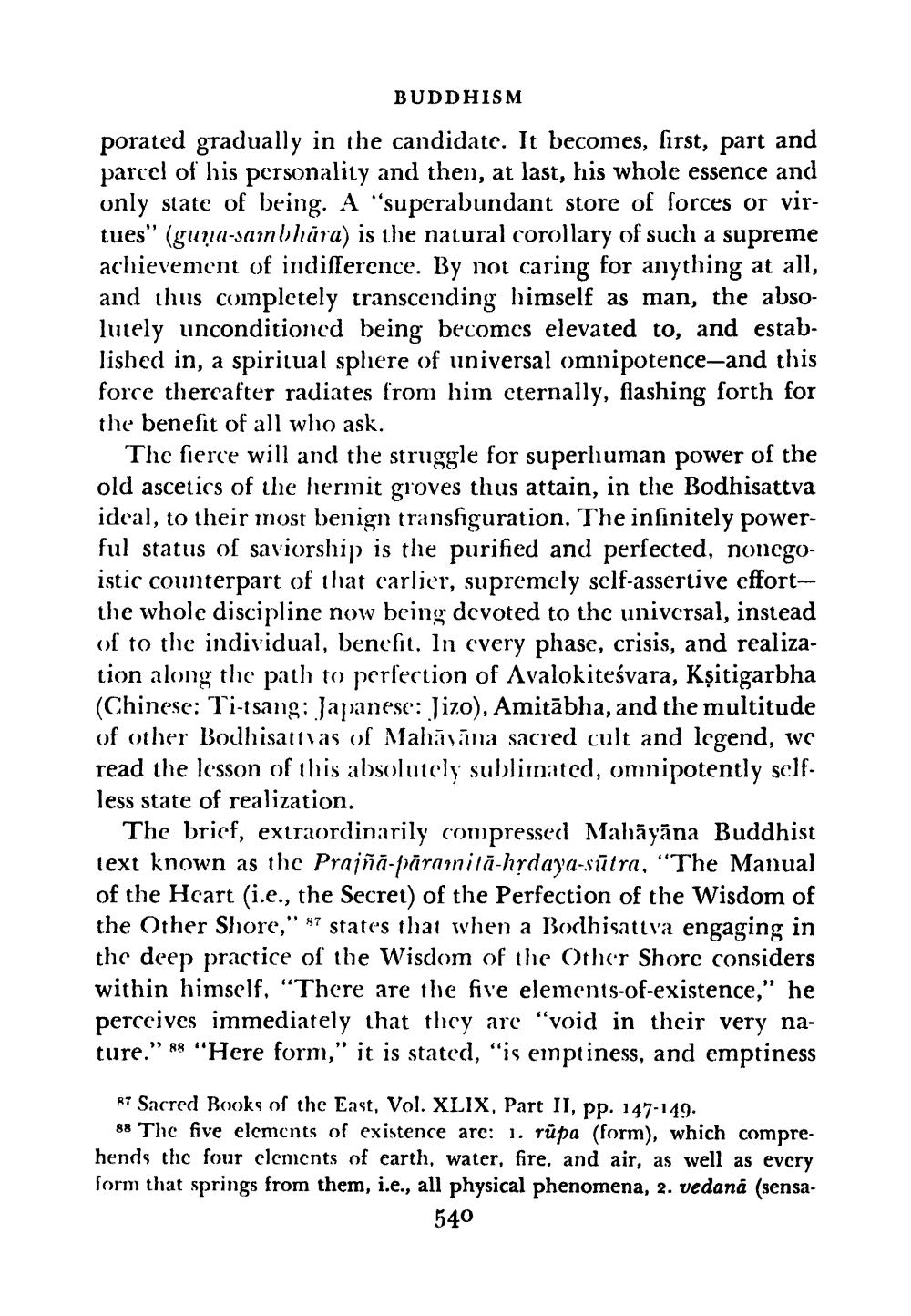________________
BUDDHISM
porated gradually in the candidate. It becomes, first, part and parcel of his personality and then, at last, his whole essence and only state of being. A "superabundant store of forces or virtues" (guna-sambhāra) is the natural corollary of such a supreme achievement of indifference. By not caring for anything at all, and thus completely transcending himself as man, the absolutely unconditioned being becomes elevated to, and established in, a spiritual sphere of universal omnipotence—and this force thereafter radiates from him eternally, flashing forth for the benefit of all who ask.
The fierce will and the struggle for superhuman power of the old ascetics of the hermit groves thus attain, in the Bodhisattva ideal, to their most benign transfiguration. The infinitely powerful status of saviorship is the purified and perfected, noncgoistic counterpart of that carlier, supremely self-assertive effortthe whole discipline now being devoted to the universal, instead of to the individual, benefit. In every phase, crisis, and realization along the path to perfection of Avalokiteśvara, Kșitigarbha (Chinese: Ti-tsang: Japanese: Jizo), Amitābha, and the multitude of other Bodhisattvas of Mahāyāna sacred cult and legend, we read the lesson of this absolutely sublimated, omnipotently selfless state of realization.
The brief, extraordinarily compressed Mahāyāna Buddhist text known as the Prajñā pārainilā-hşdaya-sūtra, "The Manual of the Hcart (i.e., the Secret) of the Perfection of the Wisdom of the Other Shore," 87 states that when a Bodhisattva engaging in the deep practice of the Wisdom of the Other Shore considers within himself, “There are the five elements-of-existence," he perceives immediately that they are “void in their very nature.” A8 "Here form," it is stated, "is emptiness, and emptiness
87 Sacred Books of the East, Vol. XLIX, Part II, pp. 147-149.
88 The five elements of existence arc: 1. rüpa (form), which comprehends the four clements of earth, water, fire, and air, as well as e form that springs from them, i.e., all physical phenomena, 2. vedana (sensa
540




